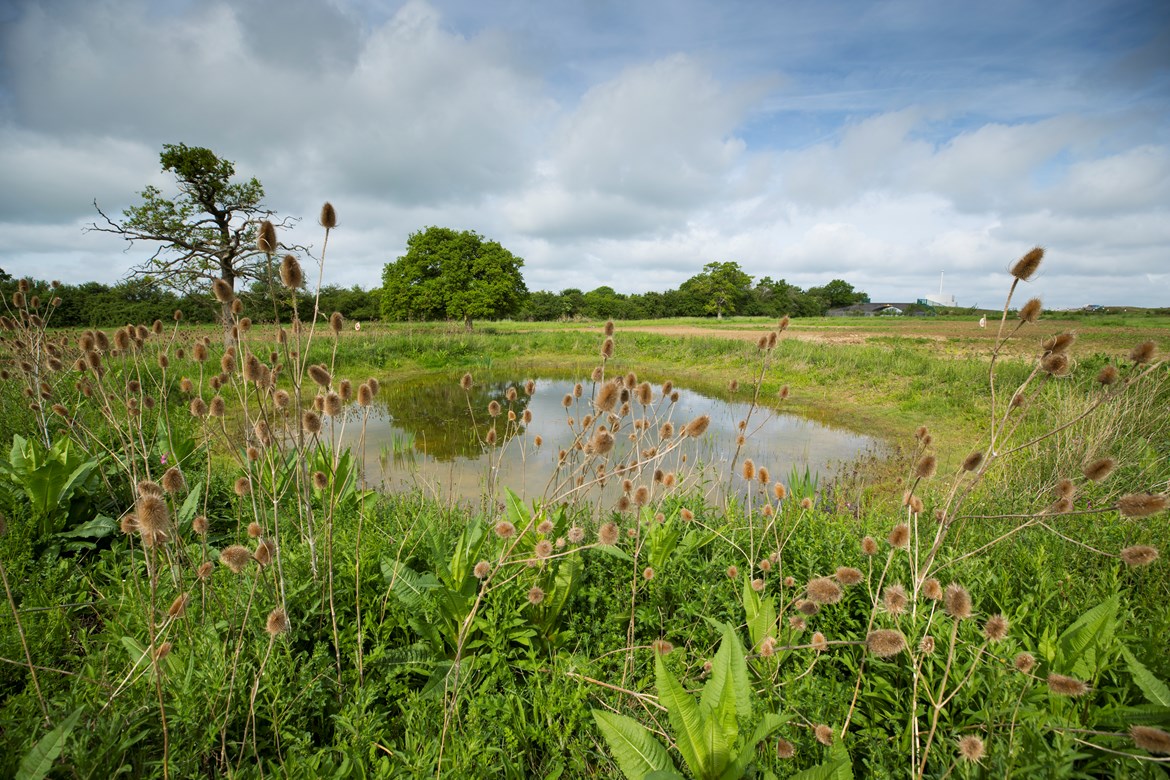HS2’s main works contractor, EKFB – a team made up of Eiffage, Kier, Ferrovial Construction and BAM Nuttall, is working with GBBP to install around 14 hives in HS2’s newly created habitats, in a bid to conserve the threatened species.
The GBBP is the UK’s only nationwide project which aims to reverse the decline of the British Black Bee (Britain’s only native honeybee) by rearing queen bees and expanding colonies into new locations, building resilience for the native population.
The project selects suitable sites across the UK, where hives are installed, maintained and monitored through a national network of beekeepers. Data is recorded on an App which is then shared with Defra for analysis.
The ‘re-introduction’ of this threatened species on a project the scale of HS2 has never been done before, providing a real opportunity to enable the expansion of this threatened species across the UK.
The wider biodiversity aims of the HS2 project fit well with the key aims of Defra’s The National Pollinator Strategy: for bees and other pollinators in England, particularly with the key areas of supporting pollinators across towns, cities and the countryside; raising awareness of what pollinators need to survive and thrive; and improving evidence on the status of pollinators.
Over 33 km2 of new woodland and wildlife habitat will be created and up to 7 million native trees and shrubs planted along HS2’s Green Corridor on Phase One between London and the West Midlands, providing ideal habitats for bees.
Jeff Castle, Chief Nectar Collector at GBBP said:
“We’re delighted that HS2 have come on board with our nationwide project to conserve the British Black Bee (Apis mellifera mellifera), which is Britain’s only native honeybee. Until the beginning of the 20th century, it dominated the landscape, pollinating crops, trees and flowers for wildlife. Recently however, due to habitat loss, climate change and viruses, the population of our native honeybee has plummeted, and populations are only just holding on in a few scattered locations across the UK.
“Members from our UK network of over 300 beekeepers will regularly monitor and maintain the HS2 hives, record information in an App and share the findings with HS2 and Defra. This will allow us to react to any problems quickly such as pests and diseases, rear queens effectively, re-queen any failing colonies and monitor numbers to see how successful we are in making a positive difference to the UK British Black Bee population.”
Kat Stanhope, HS2’s Phase One Ecology Lead said:
“We are proud to be working with the Great British Bee Project to identify sites that are suitable in which to install hives. The GBBP will populate each hive with a colony of British Black Bees, and then monitor and report on the success of the hives over an 18-month period.”
“At HS2 we’re creating a network of wildlife habitats along the line which will include species diverse grassland, ponds and native tree and shrub planting, to support a broad number of species including pollinators like the British Black Bee, as we aim to be the most sustainable project ever built.”
Marcus Pearson, Environment Lead at EKFB said:
“There are already over 170 hectares of new habitats and landscape planting creating new homes for wildlife on our 80km section of HS2 from the Chiltern Tunnel in Buckinghamshire to Long Itchington Wood Tunnel in Warwickshire.
“We’re really excited about being part of the Great British Bee Project and plan to run a programme of community engagement, school outreach and citizen science to educate people on the importance of bees and what HS2 and the GBBP are doing to reverse the decline of this threatened species.”

